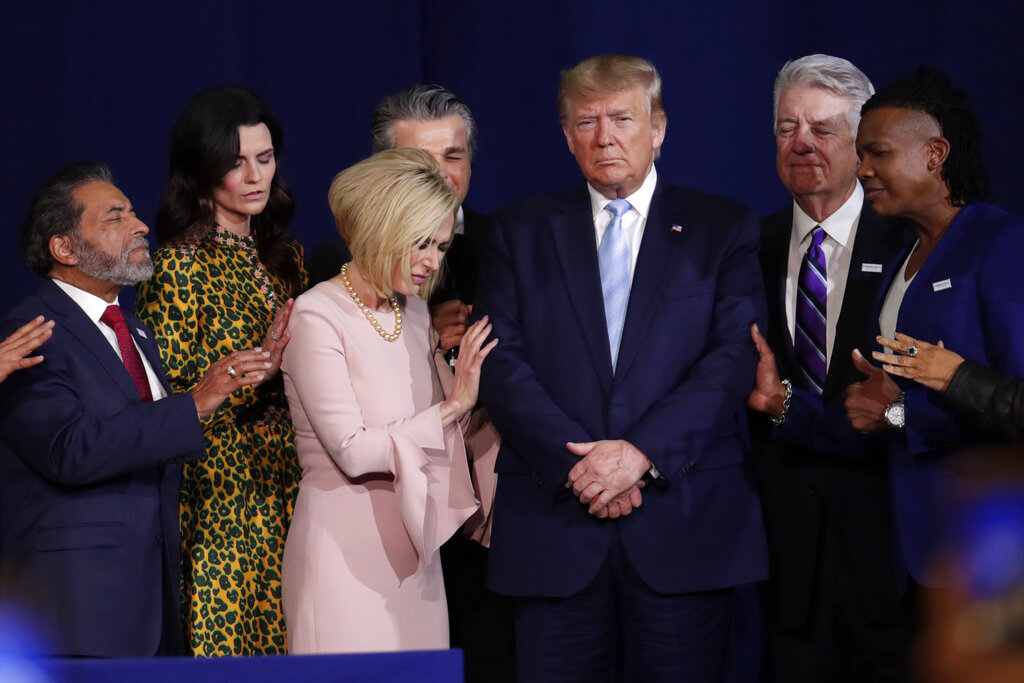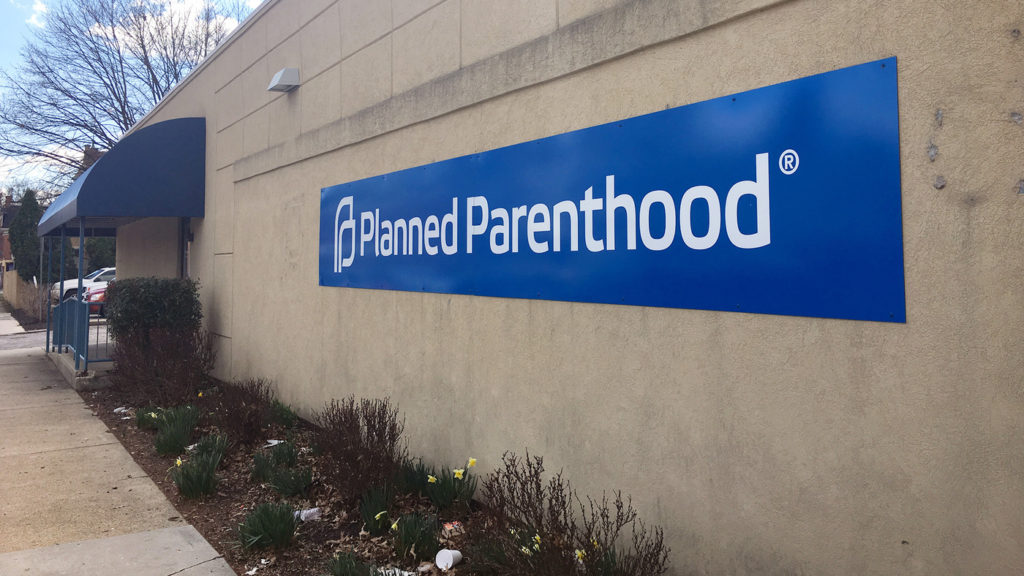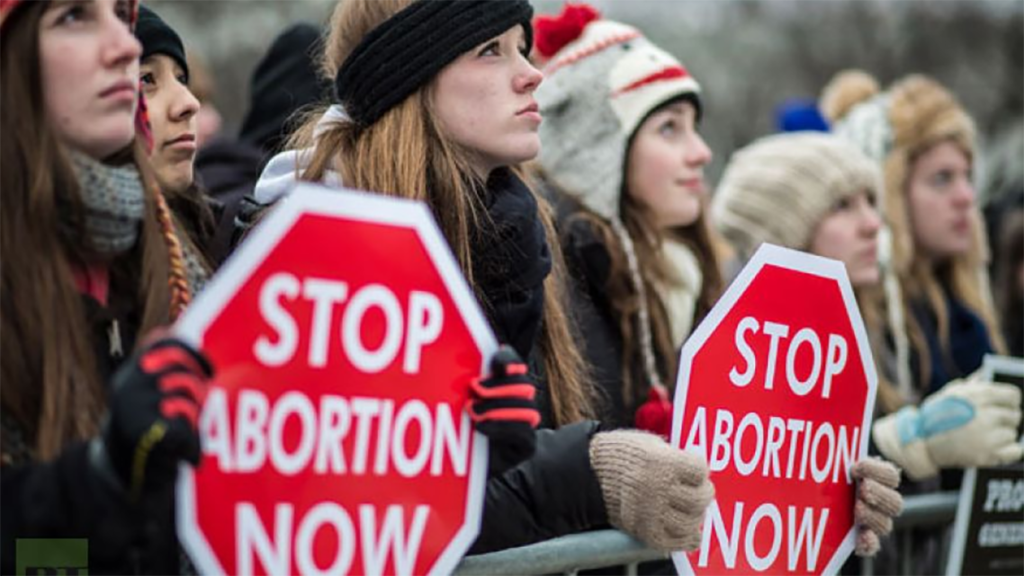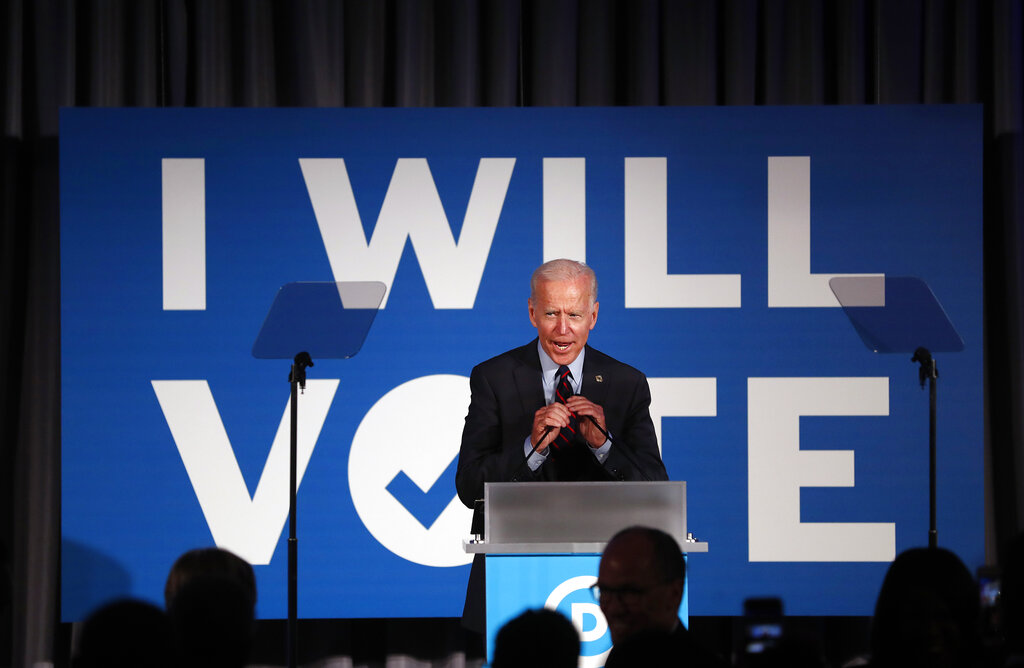Rolanda Harris introduces bill requiring men to get a vasectomy at age 50 or after third child

An Alabama state lawmaker has proposed legislation that would require men to get vasectomies within one month of their 50th birthday or the birth of their third biological child, depending on “whichever comes first.” “Under existing law, there are no restrictions on the reproductive rights of men,” the bill reads. “This bill would require a man to undergo a vasectomy within one month of his 50th birthday or the birth of his third biological child, whichever comes first.” Birmingham-Democrat, State Rep. Rolanda Hollis introduced House Bill 238 on Thursday, which states a man would have to pay for the procedure “at his own expense.” Hollis explained to ABC 33/40 her thinking behind the controvserial bill. “Many have seen HB-238 as an outrageous overstep; yet, year after year the majority party continues to introduce new legislation that tries to dictate a woman’s body and her reproductive rights. We should view this as the same outrageous overstep in authority,” she said. “The Vasectomy bill is meant to to neutralize last year’s abortion ban bill, and sends the message that men should not be legislating what women do with their bodies.” Abortion bill in question The abortion bill Hollis is referencing is 2019’s abortion ban that Gov. Kay Ivey signed into law, which made it made it a felony for doctors in the state to perform abortions in all cases except where the mother’s life is in danger. However, the bill was blocked from ever taking effect by U.S. District Judge Myron Thompson back in November.
Donald Trump, a late convert to cause, to join anti-abortion rally

It’s Trump’s latest nod to some of his most loyal backers.
Federal judge blocks Alabama’s strict abortion ban

A federal judge on Tuesday blocked Alabama’s near-total abortion ban from taking effect next month and called the law — part of a wave of new abortion restrictions by conservative states — clearly unconstitutional. U.S. District Judge Myron Thompson issued a preliminary injunction temporarily blocking Alabama from enforcing the law that would make performing an abortion a felony in almost all cases. The ruling came after abortion providers sued to block the law from taking effect Nov. 15. The injunction was widely expected and will remain in place until Thompson decides the full case. “Alabama’s abortion ban contravenes clear Supreme Court precedent,” Thompson wrote in an accompanying opinion. “It violates the right of an individual to privacy, to make choices central to personal dignity and autonomy. It diminishes the capacity of women to act in society, and to make reproductive decisions. It defies the United States Constitution.” Energized by new conservatives on the U.S. Supreme Court, Alabama and other conservative states have attempted to enact new restrictions on abortion in the hopes of getting Supreme Court justices to reconsider Roe v. Wade, the landmark 1973 decision that legalized abortion nationwide. A number of states attempted to ban abortion once a fetal heartbeat is detected. The Alabama law went further by attempting to ban almost all abortions with no exceptions for cases of rape and incest. Passed by the Republican-led legislature, the 2019 Alabama Human Life Protection Act would make performing an abortion at any stage of pregnancy a felony punishable by up to 99 years or life in prison for the abortion provider. The only exceptions would be when there is a serious health risk to the mother or the fetus has a lethal anomaly that would cause it to die shortly after birth. None of the state bans has taken effect. Some have already been blocked, and elsewhere courts are considering requests to put them on hold while legal challenges play out. “This is not only a victory for the people of Alabama — it’s a victory for the entire nation. We said it from the start: This ban is blatantly unconstitutional, and we will fight it every step of the way,” said Staci Fox, president and CEO of Planned Parenthood Southeast. Planned Parenthood was one of the groups that sued to block the law. Randall Marshall, executive director of the American Civil Liberties Union of Alabama, said the decision was expected. “Abortion remains legal in Alabama. The state’s repeated attempts to push abortion out of reach by enacting unconstitutional laws restricting abortions has already cost taxpayers nearly 2 ½ million dollars,” Marshall said. “This ill-advised law will cost taxpayers more money.” Supporters of the Alabama law have also said they anticipated the action but hope to eventually convince the U.S. Supreme Court to roll back abortion rights. Alabama Republican Rep. Terri Collins, who sponsored the ban, said the ruling “is merely the first of many steps on that legal journey.” “As we have stated before, the state’s objective is to advance our case to the U.S. Supreme Court where we intend to submit evidence that supports our argument that Roe and Casey were wrongly decided and that the Constitution does not prohibit states from protecting unborn children from abortion,” Alabama Attorney General Steve Marshall said in statement. In a measured statement, Alabama Gov. Kay Ivey said the ban reflects Alabamians beliefs, but that she also supports the “rule of law.” “This legislation passed with overwhelming support in the Alabama Legislature and was signed into law as a testament to Alabamians’ longstanding belief that every human life is sacred. We must continue doing all we can to protect life,” Ivey said. Republished with the permission of the Associated Press.
Hugh Culverhouse donates $250,000 to planned parenthood clinic

Planned Parenthood has received a $250,000 donation for its new Birmingham clinic from a critic of Alabama’s attempt to ban abortion. Planned Parenthood Southeast said Thursday that Hugh Culverhouse donated the large sum to support the relocation of its Birmingham location. Planned Parenthood is building a 10,000-square foot (929-square-meter) health clinic. Culverhouse said he has long supported Planned Parenthood and opposes a new Alabama law that seeks to ban abortion. Culverhouse recently ended a feud with the University of Alabama. Culverhouse had once called for a boycott over the abortion ban, but the university indicated their relationship had soured for other reasons. In a joint statement, the university and Culverhouse has said they had different views on the law school’s future. The university returned a $21.5 million donation from Culverhouse. Republished with the permission of the Associated Press.
Alabama ‘regrettably’ expects injunction on its abortion ban

Alabama said in a court filing Monday that U.S. Supreme Court precedent “regrettably requires” a federal judge to block the state’s near-total ban on abortions from taking effect while a legal challenge plays out. Attorney General Steve Marshall’s office gave that response after abortion clinics asked a judge for a preliminary injunction against the law, which would make performing an abortion a felony in almost all cases. One of the most stringent abortion laws in the nation, the ban is set to take effect in November unless blocked by the courts. Emboldened by new conservatives on the nation’s highest court, Alabama is part of a wave of conservative states mounting legal challenges to abortion rights and seeking to return control of abortion to the states. But the state acknowledged that its abortion ban conflicts with Supreme Court rulings including Roe v. Wade, the landmark 1973 decision legalizing abortion nationwide. Alabama said that while it hopes to eventually overturn those “tragically wrong decisions,” a federal judge is “for now” bound by them. The state said that any injunction should only apply to a ban on abortions before a fetus is viable, and that the ban should continue on post-viability abortions. However, existing Alabama law already prohibits abortions after 20 or more weeks after conception. “For now, though, this court is bound by Roe … and these cases require that plaintiffs’ motion for a preliminary injunction be granted with respect to the act’s ban on pre-viability abortions,” a state attorney wrote in Monday’s filing. “But while Attorney General Marshall will ask the Supreme Court to overrule these obviously and tragically wrong decisions, until those decisions are overruled, plaintiffs are likely to prevail on their challenge to the act as applied to abortions of pre-viability children.” U.S. District Judge Myron Thompson had asked the state to respond to the abortion providers’ request for a preliminary injunction. An earlier court filing also indicated that the state and plaintiffs might agree to an order to keep the law on hold until May 24, 2020 — a year from when the lawsuit was filed — to allow time to resolve the lawsuit. Passed by the Republican-led legislature, the 2019 Alabama Human Life Protection Act would make performing an abortion at any stage of pregnancy a felony punishable by up to 99 years or life in prison for the abortion provider. The only exceptions would be when there is a serious health risk to the mother or the fetus has a lethal anomaly that would cause it to die shortly after birth. The measure was immediately hailed by abortion opponents who hope new conservative justices appointed to the court by President Donald Trump would lead to Roe being overturned. But the hardline measure, which contains no exceptions for rape and incest, also had some national Republicans distancing themselves from Alabama by reiterating their support for those exceptions. Abortion providers, including Planned Parenthood, have sued to block the law. Several states have approved legislation to ban abortion once a fetal heartbeat is detected. None of the laws have taken effect. Republished with permission of the Associated Press.
State could pay over $1 million for blocked abortion law

Alabama might have to pay more than $1 million to lawyers for abortion clinics after the state’s unsuccessful attempt to ban a common second trimester abortion procedure. In a court filing last week, lawyers for abortion clinics said they will seek to recoup $1 million in legal fees and nearly $24,000 in expenses. Alabama is responsible for the plaintiffs’ fees after federal courts ruled the law unconstitutional. The 2016 Alabama law sought to ban the abortion procedure known as dilation and evacuation. Clinics filed a lawsuit and a judge ruled the ban unconstitutional. The U.S. Supreme Court in June refused to hear the state’s appeal. The lawsuit also successfully challenged a law blocking clinics near schools. An ongoing lawsuit is challenging Alabama’s attempt to ban abortion outright. Republished with permission of the Associated Press.
Alabama may agree to keep abortion ban on hold until 2020

Alabama indicated in a court filing that it might agree to keep the state’s new abortion ban on hold until 2020 to let a legal challenge play out in court. The law set to take effect in November would make performing an abortion a felony in most cases. Abortion providers have filed a lawsuit arguing the ban is unconstitutional. Attorneys for the state and abortion providers this week submitted a joint status report to a judge indicating the two sides would agree to delay the law if it’s not possible to resolve the case before November. The court filing said they would agree to a temporary restraining order until May 24, 2020 — a year from when the lawsuit was filed — to allow time to resolve the lawsuit. “Attorney General (Steve) Marshall agrees that, as suggested above, a temporary injunction would be appropriate to preserve the status quo,” the court filing stated. The court filing also indicated the state wants to obtain information from the opposing side although it was not clear what information it is seeking. Abortion rights groups say the ban is blatantly unconstitutional. Abortion providers also have asked for a preliminary injunction to keep the ban blocked until the case is decided.U.S. District Judge Myron Thompson gave the state until Aug. 5 to respond to that request.The Alabama law would make performing an abortion at any stage of pregnancy a felony punishable by up to 99 years or life in prison for the abortion provider. There would be few exceptions. Abortion rights groups say it is clearly unconstitutional. Emboldened by new conservatives on the U.S. Supreme Court, Alabama is part of a wave of conservative states seeking to mount new legal challenges to Roe v. Wade, the 1973 landmark Supreme Court decision that legalized abortion nationwide. Some supporters have acknowledged the ban will almost certainly be struck down by lower courts because Roe is controlling precedent, but they hope to spark a court case that might prompt the justices to revisit abortion rights. Republished with permission of the Associated Press.
Court sides with anti-abortion protester fined for pamphlets

An Alabama appeals court has ruled that an anti-abortion protester shouldn’t have been ticketed $250 for handing out pamphlets outside a clinic that provides abortion services. Al.com reports the court ruled Friday that Ellen Haverman Hermann was exempted from needing a permit as she was conducting a “minor” demonstration. Tuscaloosa city code defines minor demonstrations as those that are at least 10 feet from a major arterial road and are attended by fewer than 20 people. Court records say Hermann was protesting outside the clinic off Jack Warner Parkway in May 2017 when police received a report that she was stopping traffic. They say a responding officer found Hermann wasn’t impeding vehicles, but she ticketed her for not having a permit. The ticket was upheld upon initial appeal. Information from: The Birmingham News, https://www.al.com/birminghamnews. Republished with the permission of the Associated Press.
Joe Biden reverses position on federal dollars for abortions

After two days of intense criticism, Democratic presidential candidate Joe Biden reversed course Thursday and declared that he no longer supports a long-standing congressional ban on using federal health care money to pay for abortions. “If I believe health care is a right, as I do, I can no longer support an amendment” that makes it more difficult for some women to access care, Biden said at a Democratic Party fundraiser in Atlanta. The former vice president’s reversal on the Hyde Amendment came after rivals and women’s rights groups blasted him for affirming through campaign aides that he still supported the decades-old budget provision. The dynamics had been certain to flare up again at Democrats’ first primary debate in three weeks. Biden didn’t mention this week’s attacks, saying his decision was about health care, not politics. Yet the circumstances highlight the risks for a 76-year-old former vice president who’s running as more of a centrist in a party in which some skeptical activists openly question whether he can be the party standard-bearer in 2020. And Biden’s explanation tacitly repeated his critics’ arguments that the Hyde Amendment is another abortion barrier that disproportionately affects poor women and women of color. “I’ve been struggling with the problems that Hyde now presents,” Biden said, opening a speech dedicated mostly to voting rights and issues important to the black community. “I want to be clear: I make no apologies for my last position. I make no apologies for what I’m about to say,” he explained, arguing that “circumstances have changed” with Republican-run states — including Georgia, where Biden spoke — adopting severe restrictions on abortion . A Roman Catholic who has wrestled publicly with abortion policy for decades, Biden said he voted as a senator to support the Hyde Amendment because he believed that women would still have access to abortion even without Medicaid insurance and other federal health care grants and that abortion opponents shouldn’t be compelled to pay for the procedure. It was part of what Biden has described as a “middle ground” on abortion. Now, he says, there are too many barriers that threaten that constitutional right, leaving some women with no reasonable options as long as Republicans keep pushing for an outright repeal of the Supreme Court’s 1973 decision that legalized abortion nationwide. The former vice president, who launched his 2020 presidential campaign in April, said he arrived at the decision as part of developing an upcoming comprehensive health care proposal. He has declared his support for a Medicare-like public option as the next step toward universal coverage. He reasoned that his goal of universal coverage means women must have full and fair access to care, including abortion. A Planned Parenthood representative applauded Biden’s reversal but noted that he has been lagging the women’s rights movement on the issue. “Happy to see Joe Biden embrace what we have long known to be true: Hyde blocks people — particularly women of color and women with low incomes — from accessing safe, legal abortion care,” said Leana Wen of Planned Parenthood, the women’s health giant whose services include abortion and abortion referrals. Other activists accepted credit for pushing Biden on the issue. “We’re pleased that Joe Biden has joined the rest of the 2020 Democratic field in coalescing around the Party’s core values — support for abortion rights, and the basic truth that reproductive freedom is fundamental to the pursuit of equality and economic security in this country,” said Ilyse Hogue, president of NARAL, a leading abortion-rights advocacy group. Repealing Hyde has become a defining standard for Democrats in recent years, making what was once a more common position among moderate Democrats more untenable, particularly given the dynamics of primary politics heading into 2020. At its 2016 convention, the party included a call for repealing Hyde in the Democratic platform, doing so at the urging of nominee Hillary Clinton. At least one prominent Democratic woman remained unconvinced. “I am not clear that Joe Biden believes unequivocally that every single woman has the right to make decisions about her body, regardless of her income or race,” said Democratic strategist Jess Morales Rocketto, who worked for Clinton in 2016. “It is imperative that the Democratic nominee believe that.” Republicans pounced, framing Biden’s change in position as a gaffe.“He’s just not very good at this. Joe Biden is an existential threat to Joe Biden,” said Tim Murtaugh, the communications director for President Donald Trump’s reelection campaign. A senior Biden campaign official said some aides were surprised at the speed of the reversal, given Biden’s long history of explaining his abortion positions in terms of his faith. But aides realized that as the front-runner, the attacks weren’t going to let up, and his campaign reasoned that the fallout within the Democratic primary outweigh any long-term benefit of maintain his previous Hyde support. The official spoke on condition of anonymity to discuss internal conversations. Biden’s decade long position first gained new scrutiny several weeks ago when the American Civil Liberties Union circulated video of the candidate telling an activist who asked about the Hyde Amendment that it should be repealed. His campaign later affirmed his support for his fellow Democrats’ call for a federal statute codifying the Roe v. Wade abortion decision into law. Associated Press writer Elana Schor and Juana Summers in Washington, Steve Peoples in New York and Thomas Beaumont in Des Moines, Iowa, contributed to this report. Republished with permission of the Associated Press.
Governor Ivey signs near-total abortion ban into law

Alabama’s Republican Governor signed the most stringent abortion legislation in the nation Wednesday, making performing an abortion a felony in nearly all cases. “To the bill’s many supporters, this legislation stands as a powerful testament to Alabamians’ deeply held belief that every life is precious and that every life is a sacred gift from God,” Republican Gov. Kay Ivey said in a statement. The bill’s sponsors want to give conservatives on the U.S. Supreme Court a chance to gut abortion rights nationwide, but Democrats and abortion rights advocates criticized the bill as a slap in the face to women voters.“It just completely disregards women and the value of women and their voice. We have once again silenced women on a very personal issue,” said Sen. Linda Coleman-Madison, a Birmingham Democrat. Coleman-Madison said she hopes the measure awakens a “sleeping giant” of women voters in the state. But Republican pollster Chris Kratzer noted that there is no congressional district and likely no legislative district with enough swing voters to put Republicans at serious risk in the state. “The people who are outraged about this are not the people who are electing these guys, generally speaking, especially when we’re talking about the primary,” he said. The legislation Alabama senators passed Tuesday would make performing an abortion at any stage of pregnancy a felony punishable by 10 to 99 years or life in prison for the provider. The only exception would be when the woman’s health is at serious risk. Women seeking or undergoing abortions wouldn’t be punished. Ivey acknowledged Wednesday that the measure may be unenforceable in the short term. “The sponsors of this bill believe that it is time, once again, for the U.S. Supreme Court to revisit this important matter, and they believe this act may bring about the best opportunity for this to occur,” Ivey said.Rep. Terri Collins, the bill’s sponsor, said she believes the bill reflects the beliefs of the majority of the state electorate. “I’ve heard from lots of women in the state who are extremely pro-life and they’re very supportive,” Collins said. Kentucky, Mississippi, Ohio and Georgia recently have approved bans on abortion once a fetal heartbeat is detected, which can occur in about the sixth week of pregnancy. The Alabama bill goes further by seeking to ban abortion outright. Abortion rights advocates vowed swift legal action. “We are laser-focused on urging Gov. Kay Ivey to veto this dangerous bill. If she chooses not to, then we will take this to court and ensure that abortion remains safe and legal and accessible in the state of Alabama,” said Staci Fox, president and CEO of Planned Parenthood Southeast. Supporters of the bill acknowledged the ban would not be effective anytime soon, because they expected it to be blocked by the courts as they fight upward toward the court. One mile from the Alabama Statehouse — down the street from the Governor’s Mansion — sits Montgomery’s only abortion clinic. Because of its location, the clinic sees a stream of patients from Mississippi and the Florida Panhandle because other clinics have closed. Clinic staff on Wednesday fielded calls from patients, and potential patients, wrongly worried that abortion was now illegal in the state. They were assured abortion remained legal in the state. “It’s been a lot of fear. A lot of people who are afraid they can’t get their procedure,” said Kari Crowe, a clinic employee and escort. “Abortion is OK!” read a banner paid for by abortion rights advocates that a plane carried as it circled the Alabama Capitol and Statehouse on Wednesday. Blake Paterson contributed to this report, and is an AP writer in Montgomery, Alabama.
Alabama just one of several states considering pro-life legislation

The Louisiana legislature is halfway toward passing a law — like the ones enacted in Mississippi and Georgia — that will ban abortions after a fetal heartbeat is detected, about six weeks into a pregnancy and before many women know they’re pregnant. Alabama is on the cusp of approving an even more restrictive bill. State governments are on a course to virtually eliminate abortion access in large chunks of the Deep South and Midwest. Ohio and Kentucky also have passed heartbeat laws; Missouri’s Republican-controlled legislature is considering one. Their hope is that a more conservative U.S. Supreme Court will approve, spelling the end of the constitutional right to abortion. “For pro-life folks, these are huge victories,” said Sue Liebel, state director for the Susan B. Anthony List, an anti-abortion advocacy group. “And I think they’re indicative of the momentum and excitement and the hope that’s happening with changes in the Supreme Court and having such a pro-life president.” For abortion rights supporters, meanwhile, the trend is ominous. Said Diane Derzis, owner of Mississippi’s sole abortion clinic, the Jackson Women’s Health Organization: “I think it’s certainly more dire than it ever has been. They smell blood and that’s why they’re doing this.” Already, Mississippi mandates a 24-hour wait between an in-person consultation. That means women must make at least two trips to her clinic, often traveling long distances. Other states have passed similar, incremental laws restricting abortion in recent years, and aside from Mississippi, five states have just one clinic — Kentucky, Missouri, North and South Dakota, and West Virginia. But the latest efforts to bar the procedure represent the largest assault on abortion rights in decades. Lawmakers sponsoring the bans have made it clear their goal is to spark court challenges in hopes of ultimately overturning the 1973 Roe v. Wade decision legalizing abortion. Those challenges have begun. Derzis’ attorneys are scheduled to go before a judge on May 21, seeking to prevent Mississippi’s heartbeat law from taking effect July 1. A judge in Kentucky blocked enforcement of that state’s heartbeat ban after the American Civil Liberties Union filed suit on behalf of the clinic in Louisville. Similar legal action is expected before bans can take effect in Ohio and Georgia, where Republican Gov. Brian Kemp signed the latest heartbeat bill into law Tuesday. Kemp said he welcomed the fight, vowing: “We will not back down.” Georgia’s ban doesn’t take effect until Jan. 1. But the impact was immediate.An abortion clinic operated by The Women’s Centers in Atlanta began receiving anxious calls from patients soon after Kemp signed the law. Many callers had plans to travel from outside the state for abortions. Georgia’s heartbeat ban would have a wider impact because the state has 17 abortion clinics — more than the combined total in the other four Southern states that have passed or are considering bans. “On a typical day we will see people from North Carolina, Tennessee, Alabama, South Carolina — all over the region,” said Dr. Lisa Haddad, the Atlanta clinic’s medical director. “And my thought is we’re not going to see those people coming here because they assume it’s already illegal in Georgia.” Dr. Ernest Marshall, co-founder of Kentucky’s last remaining abortion clinic in Louisville, said in an email that banning abortions before most women know they’re pregnant would “have a disproportionate impact on poor women and communities of color throughout the South.” Advocates for abortion rights expect judges to halt enforcement of any new bans while lawsuits work their way through the courts. That could take years. “These laws are blatantly unconstitutional,” said Elisabeth Smith, chief counsel for state policy and advocacy for the Center for Reproductive Rights, which also has filed suit over Mississippi’s ban. “But if they were allowed to go into force, they would have devastating consequences for the residents of all of these states.” If heartbeat bans are upheld, many women who are poor and have limited means to travel would have few options other than to try to terminate their own pregnancies, Haddad said, possibly using abortion drugs purchased online. Others would have to drive or fly across multiple states, said Elizabeth Nash, a state policy analyst for the Guttmacher Institute, a research group that supports abortion rights. “People would go to Florida, people would continue to go to Memphis,” Nash said. “How many states do you have to cross before you can access abortion services? It exacerbates all the issues we’ve already seen around taking time off from work and having the money to travel.” Proposed heartbeat bans failed to pass this year in several Republican-led states, including Texas. There, GOP lawmakers lost ground to Democrats in the 2018 elections, and some abortion foes were wary after courts struck down prior abortion restrictions in the state. Such efforts also fell short in Florida, South Carolina, Tennessee and West Virginia. Alabama lawmakers postponed until next week a vote on a proposal that would make performing nearly all abortions a felony. The measure has passed the state House, and the Senate suspended debate Thursday amid a heated dispute over whether exemptions for rape and incest should be stripped from the bill. “You can’t put a price on unborn life,” Eric Johnston, president of the Alabama Pro-Life Coalition, said Wednesday, as a legislative committee heard testimony on the state’s proposed ban. “What you have to do is protect the people that live in this state and that includes unborn children.” But Jenna King-Shepherd told Alabama lawmakers she believed the abortion she had at age 17 allowed her to finish college. She said her father, a part-time Baptist preacher furious about her pregnancy, drove her to the abortion clinic because he trusted her to make the right choice. “I’m not asking you to support access to abortion,” King-Shepherd said. “I’m only asking you to let women, their families, their physicians and their God make this decision on how they want to start their families in private and trust them to do that.” Republished
Martha Roby: Reflecting on the President’s State of the Union and pro-life call to action

Every year, the State of the Union address provides an important opportunity for the sitting President to speak directly to Congress and the American people and offer an update on his priorities and plans to accomplish them. I recently attended President Trump’s second State of the Union address, and I was glad to hear what he had to say. In this year’s State of the Union address, President Donald Trump highlighted the economic success hardworking Americans are experiencing thanks to the implementation of pro-growth policies, including the historic tax reform overhaul. I was also pleased to hear more about his plans to work with Congress to secure our border, reinvigorate our badly aging infrastructure, strengthen our military, bolster our national security efforts, improve care for veterans, and defend the unborn. The last item on that list has received a lot of attention lately due to the heartbreaking news that has come out of New York and Virginia in recent weeks. If you’ve not heard, the legislature in the State of New York recently cheered loudly upon their passage of a bill that would significantly loosen restrictions on late-term abortions. In Virginia, the Democratic Governor Ralph Northam is facing severe backlash over his support for a similar state measure. He said: “Third trimester abortions are done in cases where there may be severe deformities… If a mother is in labor, I can tell you exactly what would happen. The infant would be delivered. The infant would be kept comfortable. The infant would be resuscitated if that’s what the mother and the family desired.” These comments are a horrific defense of born-alive abortions – infanticide. No matter your position on abortion generally, I hope we can all agree that if an abortion fails and a child is born alive, the child must be given the same care that any other living, breathing infant would otherwise be given. I truly never dreamt I would see the day America would have government officials who openly support legal infanticide. It is stunning, appalling, and heartbreaking. During this challenging time for the pro-life movement in this country, I am very glad that President Trump utilized his platform during the State of the Union address to offer a call to action: We must put legal protections in place for babies who are born alive during botched abortions. I remain unapologetically pro-life. I believe life begins at conception and am opposed to abortion at any stage. I understand that not everyone shares my views, but still, I am severely disturbed that this country now requires written legal provisions to protect a living baby. Sadly, in the aftermath of the news coming out of New York and Virginia, it is clear that this step is immediately necessary. In the House, Republicans wasted no time in responding to the President’s demand for action. Two of my colleagues in particular, Congressman Steve Scalise from Louisiana, who is our House Minority Whip, and Congresswoman Ann Wagner of Missouri, are leading efforts to force a vote on the Born-Alive Abortion Survivors Protection Act, a bill I cosponsor that would protect babies who are born alive during abortion procedures. I cannot express how strongly I support this commonsense measure, and I cannot fathom how any person would oppose it. We must swiftly advance legal protections for these newborns and punish any doctor who allows an infant to die. I also support our Republican leadership’s efforts to quickly bring up a vote on this legislation. Every single member of Congress should be forced to vote either for or against infanticide. The American people deserve to know where each of us stands on this humanitarian issue. The challenges we face with a divided Congress have been made abundantly clear. I was encouraged by President Trump’s remarks during his State of the Union address, and I was especially glad that he stood in strong defense of the unborn and rallied our pro-life community to action. I am eager to continue working with his Administration and my colleagues in Congress to deliver results on this important issue and others. The American people and Alabama’s Second District deserve nothing less. ••• Martha Roby represents Alabama’s Second District. She lives in Montgomery, Alabama, with her husband Riley and their two children.

